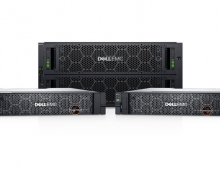
Dell Announces Technologies On Demand Subscription Model
Dell Technologies is introducing Dell Technologies On Demand, a set of consumption-based and as-a-service offerings on a broad infrastructure portfolio inclusing servers and personal computers.
As part of this new offering, the company is expanding its flexible consumption portfolio to support Dell EMC PowerEdge servers and the new Dell EMC PowerOne autonomous infrastructure system.
Dell Technologies On Demand offers flexible payment options for an extensive range of technologies across the full infrastructure stack, including compute, storage, networking and virtualization. Software-defined and hybrid cloud solutions are available via Dell Technologies Cloud and VMware, along with data protection, PC and digital workspaces.
Benefits include:
- Integrating full-stack solutions from Dell Technologies Cloud to Dell Technologies Unified Workspace to engineered workload solutions for critical business applications and workloads
- Matching spending with usage through Pay As You Grow, Flex On Demand or Data Center Utility, three flexible consumption solutions that scale while providing transparency on total cost of ownership throughout the technology lifecycle.
- Using data collection and processor-based measurement by the hour with the new Flex On Demand for PowerEdge servers to avoid the costs associated with over-provisioning.
- Providing services with ProDeploy, ProSupport and Managed Services. They can be bundled and paired with all the financial consumption models, bringing a tailored as-a-service experience.
- Expanding PCaaS to include small business, offering PC acquisition, lifecycle management of hardware, software, services and financing for growing companies in a single, predictable price per seat per month.
Public cloud giants such as Amazon Web Services and Microsoft Azure have cut demand for data-center hardware as more businesses look to rent computing power rather than invest in their own server farms. Rival Hewlett Packard Enterprise Co. said in June that it would move to a subscription model by 2022.





















